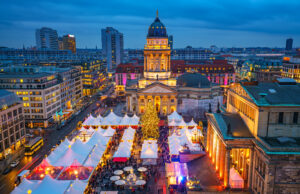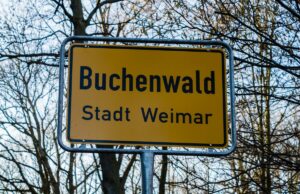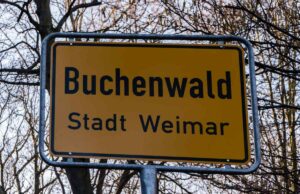
Besides great sights, an interesting history and many exciting destinations, Selby has a lot more to offer. Here you will find many helpful tips to enjoy your vacation in Selby.
Here you can find hotels in the area of Selby
Just type in your destination and get many different suggestions.
Sights in Selby
Selby is a town and civil parish in North Yorkshire, England. Historically part of the West Riding of Yorkshire, Selby is on the confluence of the River Ouse and River Aire, approximately 20 miles (32 km) southwest of York. at the 2011 Census the town had a population of 14,731. Selby is the root of the duchy, later dukedom, of Selby. The town was granted a charter to become a free borough by King William I shortly after the Norman Conquest.
Situated off the A63, Selby has good road links with Leeds, Hull, York and Wakefield. The M62 motorway passes just to the south of the town.
The town grew up around Selby Abbey, a Benedictine monastery founded in 1069. Five years later the Domesday Book recorded 36 hogsheads of wine made here annually. The town was granted its first charter in 1154, making it the first town in Yorkshire to have the right to hold a weekly market. It continued to prosper as a market town and suffered little from the Black Death in 1349.
Industry came to Selby in the 14th century, when the monks of the abbey began to exploit the rich coal seams of the areas to the east of the town. The town became an important port, serving as a base for exporting coal from the mines at Drax, escorting it downriver to Hull. Boats carried cargoes of 100 to 200 tons. In 1618 Selby Canal was built, linking Selby with Goole, 26 miles (42 km) to the south. Coal, limestone and Cornish stone were transported along the canal. Selby Canal was of major strategic importance during the Second World War, being an alternative route for shipping during the bombing of Yorkshire’s east coast.
Despite the deep navigation channel being dredged regularly, Selby Canal was closed in 1966 as a result of increased lorry traffic and the growth of the oil industry using Selby as a base.
The River Ouse flows through Selby, and the town’s bridges include the Swing Bridge, ancient but wellmaintained, which for many years was worked by hand. The present bridge dates from 1884 and is the only remaining swing bridge in England that is still worked manually by a specially trained lock keeper who physically moves levers to open each leaf of the bridge.
The 15thcentury Pancake Bell hangs in Selby Abbey. It is rung each Shrove Tuesday, signalling the beginning of Lent.
Selby is twinned with Fulda in Germany.
History of Selby
Selby is a town and civil parish in North Yorkshire, England. The town is on the River Ouse, Selby Canal and A63, and is Selby District’s administrative centre.
The site of Selby Abbey, an important large Benedictine monastery, was founded in 1069 by Benedictine monks from Ripon. The town grew around the abbey, and Selby Abbey Gatehouse (built in 1476) is a Grade I listed building. The population of Selby town was 8,029 at the 2011 Census.
The origins of Selby are uncertain. The name is thought to be derived from the Old Norse Seleby, meaning “settlement by the willows”. It has alternatively been suggested that the name may mean “sallow, pale yellow”, or derive from the surrounding area which was once mostly marshland.
The town grew up around Selby Abbey, founded in 1069 on the orders of William the Conqueror. The Abbey, dedicated to St. Mary, Virgin and St. Wilfrid, was built on lowlying land, surrounded by marsh and water. The first abbot, Gilbert, started work on the Abbey Church, which was completed in 1120. The Abbey, which was richly endowed, became powerful and influential.
The Abbey controlled much of the town’s trade, and had the right to hold a market and a fair. It was also a centre of learning: in the 12th century, under the abbot Thuraldus (d.1174), a famous school for the education of the nobles was founded at Selby, which helped to make the town a fashionable resort in the medieval period.
In the civil war of the 17th century, the town was a Royalist stronghold, and was besieged by Parliamentarians. The Parliamentarians shelled the town and set fire to some of the houses, but were eventually forced to give up and retreat.
The Abbey fell into ruin after the Dissolution of the Monasteries in the 16th century. The east end of the church collapsed in 1803, and the rest of the church was closed to the public in 1817 for safety reasons. Although the Abbey is now in ruins, it is still an active parish church, and many of the town’s residents are buried in the Abbey graveyard.
The 19th century saw Selby become an important industrial town, with coal mines, iron foundries, glassworks and chemical works. The town’s docks, which had been built in the 18th century to ship coal from the surrounding mines, were expanded and developed, and Selby became an important port, handling large quantities of timber, corn and wool. The Selby Canal, opened in 1778, made Selby an inland port, and the town continued to prosper until the late 19th century.
The 20th century brought new industries to Selby, including engineering works and a brass foundry. The docks declined in importance, and coal mining ceased in the area in the 1980s. However, Selby remains an important industrial town, with a large foodprocessing factory, a railway engineering works and a variety of small engineering firms.
Selby is a market town, with a traditional market square, and a market charter dating back to 1266. The market is held every Monday, Wednesday, Friday and Saturday, and there is also a farmers’ market on the first Saturday of every month.
The town’s history can be explored at Selby Civic Society Museum, which is housed in a former Wesleyan chapel on Micklegate. The museum, which is run by volunteers, has a collection of local artefacts and archives, and a programme of temporary exhibitions.
Vacation in Selby
Selby is a town and civil parish in North Yorkshire, England. Historically part of the West Riding of Yorkshire, it is 10.4 miles (16.7 km) east of Leeds and 6.7 miles (10.8 km) west of York on the River Ouse. A market town with medieval origins, Selby was the site of the Battle of Selby, a major battle in the English Civil War.
The town’s abbey, Selby Abbey, is the burial place of King Henry I. Selby is home to Selby Town F.C. who play in the Northern Counties East Football League.
The origins of Selby date back to the establishment of a Viking settlement on the banks of the River Ouse in the 9th century. The town’s name is derived from the Viking seleby, meaning “settlement by the river crossing”. Selby was granted a Royal Charter in 1158, making it a market town and giving its residents the right to hold a weekly market and an annual fair.
In the 11th century, Selby Abbey was founded on the banks of the River Ouse. The Abbey, which is dedicated to St. Mary, is the burial place of King Henry I. The Abbey also supported a large monastic community and grew to be one of the wealthiest in England.
The Abbey was dissolved in 1539 as part of the Dissolution of the Monasteries under Henry VIII. The former Abbey site includes the Abbey Church, Abbey Gardens and Abbey Visitor Centre, which are all open to the public.
The town’s market cross is a Grade I listed structure and stands in the town centre. It was originally erected in the 14th century and has been rebuilt several times since.
The town’s primary shopping street is Low Ousegate, which runs parallel to the River Ouse. Selby’s main industries are coal mining and chemical manufacture.
Selby has a number of primary schools, including Abbey Primary School, Barlby Bridge Primary School, Brayton Academy, Sherburn Hungate Primary School and Selby Infant and Nursery School. There are also two secondary schools in the town, Selby High School and Selby College.
Selby is wellconnected, with good road and rail links to the rest of the country. The M62 motorway passes to the south of the town and the A63 runs through the town centre. Selby railway station provides regular services to Leeds, York and Hull. There are also regular bus services to Leeds, York and Hull.
There are a number of tourist attractions in Selby, including Selby Abbey, the Abbey Gardens and the Market Cross. For nature lovers, the town is also home to Selby Park, which is situated on the banks of the River Ouse.
Other vacation destinations in England:















